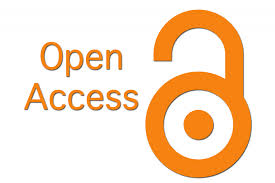STRATEGI KEBERLANJUTAN PENGELOLAAN PENCEMARAN SAMPAH PLASTIK DI PESISIR KOTA DUMAI RIAU MELALUI PENDEKATAN ANALISIS MACTOR
Abstract
Keywords
Full Text:
PDFReferences
Barton, A., & Dlouhá, J. (n.d.). Exploring regional sustainable development issues. Using the case study approach in higher education.
Cairns, G., Wright, G., & Fairbrother, P. (n.d.). Promoting articulated action from diverse stakeholders in response to public policy scenarios: a case analysis of the use of “scenario improvisation” method.
Elmsalmi, M., & Hachicha, W. (2014). Risk mitigation strategies according to the supply actors’ objectives through MACTOR method. 2014 International Conference on Advanced Logistics and Transport, ICALT 2014, 362–367. https://doi.org/10.1109/ICAdLT.2014.6866339
Eriksen, M., Lebreton, L. C. M., Carson, H. S., Thiel, M., Moore, C. J., Borerro, J. C., Galgani, F., Ryan, P. G., & Reisser, J. (2014). Plastic Pollution in the World’s Oceans: More than 5 Trillion Plastic Pieces Weighing over 250,000 Tons Afloat at Sea. PLoS ONE, 9(12). https://doi.org/10.1371/journal.pone.0111913
Fauzi A. 2019. Teknik Analisis Keberlanjutan. PT Gramedia Pustaka Utama. Jakarta.
Febriani, L., Siregar, Y.I., Putra, R.M. (2020). Analisis Pengelolaan Sampah Rumah Tangga Berbasis Masyarakat di Kecamatan Marpoyan Damai Kota Pekanbaru. Jurnal Photon. 11(1): 1-11.
Howlett, M., How, Y. P., & del Rio, P. (2015). The parameters of policy portfolios: verticality and horizontality in design spaces and their consequences for policy mix formulation. Environment and Planning C: Government and Policy, 33(5), 1233–1245. https://doi.org/10.1177/0263774X15610059
Jambeck, J., Hardesty, B. D., Brooks, A. L., Friend, T., Teleki, K., Fabres, J., Beaudoin, Y., Bamba, A., Francis, J., Ribbink, A. J., Baleta, T., Bouwman, H., Knox, J., & Wilcox, C. (2018). Challenges and emerging solutions to the land-based plastic waste issue in Africa. Marine Policy, 96, 256–263. https://doi.org/10.1016/j.marpol.2017.10.041
Jaziri, R., & Boussaffa, A. (2010). A prospective analysis study of sustainable tourism in Tunisia using scenario method A prospective analysis study of sustainable tourism in Tunisia using scenario method. International conference “Global sustainable tourism.” https://hal.science/hal-01343836
Kaza, S., Yao, L., Bhada-Tata, P., & Woerden, F. Van. (n.d.). WHAT A WASTE 2.0 A Global Snapshot of Solid Waste Management to 2050 OVERVIEW Tokyo Development Learning Center. http://www.worldbank.org/what-a-waste.JapanGov
Omran, A., Khorish, M., & Saleh, M. (2014). Structural Analysis with Knowledge-based MICMAC Approach. International Journal of Computer Applications, 86(5), 39–43. https://doi.org/10.5120/14985-3290
Rahma, H., Fauzi, A., Juanda, B., & Widjojanto, B. (2021). Fenomena Natural Resource Curse dalam Pembangunan Wilayah di Indonesia. Jurnal Ekonomi Dan Pembangunan Indonesia, 21(2), 148–163. https://doi.org/10.21002/jepi.2021.10
Raju, A., Delaere, S., Lindmark, S., Stamatelatos, M., & Ballon, P. (2011). Sustainability of Business Ecosystems for Next Generation Cognitive Networks.
Rees, G. H., & MacDonell, S. (2017). Data gathering for actor analyses: A research note on the collection and aggregation of individual respondent data for MACTOR. Future Studies Research Journal: Trends and Strategies, 9(1), 115–137. https://doi.org/10.24023/futurejournal/2175-5825/2017.v9i1.256
Robin Bryant, C., Bousbaine, A., Christopher, B., & Antonia, B. D. (2014). Actor Dynamics and Sustainable Development: Emerging Roles of Researchers Actor Dynamics and Sustainable Development: Emerging Roles of Researchers La dynamique actorielle et le développement durable : les nouveaux rôles des chercheurs (Vol. 1, Issue 2). http://laurentian.ca/cjtg
Rochman, C. M., Tahir, A., Williams, S. L., Baxa, D. V., Lam, R., Miller, J. T., Teh, F. C., Werorilangi, S., & Teh, S. J. (2015). Anthropogenic debris in seafood: Plastic debris and fibers from textiles in fish and bivalves sold for human consumption. Scientific Reports, 5. https://doi.org/10.1038/srep14340
Satrivi, N., & Purnama, C. (2021). Pembentukan Opini Publik Indonesia oleh Cable News Network (CNN) Indonesia Berkenaan dengan Isu Sampah Plastik. Padjadjaran Journal of International Relations, 3(2), 228–241. https://doi.org/10.24198/padjir.v3i2.31172.33515
Setiadi, R., Nurhadi, M., & Prihantoro, F. (2020). Idealisme dan Dualisme Daur Ulang Sampah di Indonesia: Studi Kasus Kota Semarang. Jurnal Ilmu Lingkungan, 18(1), 48–57. https://doi.org/10.14710/jil.18.1.48-57
Sukholthaman, P., & Shirahada, K. (2015). Technological challenges for effective development towards sustainable waste management in developing countries: Case study of Bangkok, Thailand. Technology in Society, 43, 231–239. https://doi.org/10.1016/j.techsoc.2015.05.003
Taylor, J. R., DeVogelaere, A. P., Burton, E. J., Frey, O., Lundsten, L., Kuhnz, L. A., Whaling, P. J., Lovera, C., Buck, K. R., & Barry, J. P. (2014). Deep-sea faunal communities associated with a lost intermodal shipping container in the Monterey Bay National Marine Sanctuary, CA. Marine Pollution Bulletin, 83(1), 92–106. https://doi.org/10.1016/j.marpolbul.2014.04.014
Tonini, D., Albizzati, P. F., & Astrup, T. F. (2018). Environmental impacts of food waste: Learnings and challenges from a case study on UK. Waste Management, 76, 744–766. https://doi.org/10.1016/j.wasman.2018.03.032
Vince, J., & Hardesty, B. D. (2017). Plastic pollution challenges in marine and coastal environments: from local to global governance. Restoration Ecology, 25(1), 123–128. https://doi.org/10.1111/rec.12388
Wieczorek, A., Vianello, A., Laufkötter, C., Rochman, C., Hannon, C., Panti, C., van Sebille, E., Galgani, F., Bessa, F., Suaria, G., Peter Arp, H., Ivar do Sul, J., Foster, L., Lebreton, L., Burkhardt-Holm, P., Gündoğdu, S., Di Vito, S., Werner, S., Kühn, S., … Botta, V. (2021). Report information Citation and disclaimer. www.maldeegan.com
Wilson, D. C., & Velis, C. A. (2014). Cities and waste: Current and emerging issues. In Waste Management and Research (Vol. 32, Issue 9, pp. 797–799). SAGE Publications Ltd. https://doi.org/10.1177/0734242X14547125
Zali, N., Rabbani, T., & Motti, V. V. (2015). Application of Prospective Structural Analysis for Identification of Strategic Variables in the Future Development of Baneh City in Iran. European Spatial Research and Policy, 22(1), 153–171. https://doi.org/10.1515/esrp-2015-0022
DOI: http://dx.doi.org/10.15578/jkpi.16.2.2024.85-98

Jurnal Kebijakan Perikanan Indonesia is licensed under a Creative Commons Attribution-ShareAlike 4.0 International License.
View My Stats
p-ISSN 1979-6366
e-ISSN 2502-6550












